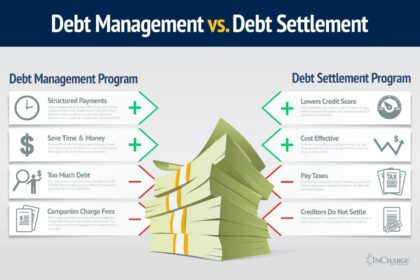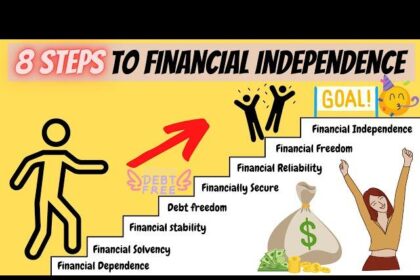In the intricate tapestry of life, where moments blend seamlessly into memories, the notion of estate planning emerges as a guiding thread, weaving clarity through the complexities of our legacies. Many might assume that estate planning is solely the province of the wealthy or those with expansive portfolios, yet its principles hold profound relevance for individuals from all walks of life. It’s not merely about the distribution of wealth; it’s an invitation to reflect on one’s values, relationships, and aspirations for the future. As we navigate the crossroads of family dynamics, financial decisions, and personal wishes, understanding the nuances of estate planning becomes essential. This article serves as a compass, illuminating the path toward thoughtful estate planning, empowering you to secure your legacy while fostering peace of mind for you and your loved ones.
Budgeting Tips
When considering estate planning, effective budgeting is crucial to ensure that your assets are distributed according to your wishes. Begin by evaluating your current financial situation to identify how much you can allocate towards various elements of your estate plan. This may include drafting wills, establishing trusts, and setting aside funds for taxes or debts. Here are some essential tips to keep your budget on track:
- Prioritize Your Goals: Determine what aspects of your estate planning are most important and allocate funds accordingly.
- Utilize Professionals Wisely: While hiring attorneys or financial advisors, ensure you understand their fees upfront to avoid surprises.
- Review and Adjust: Regularly revisit your estate plan and budget to reflect any changes in your financial situation or family dynamics.
Creating a budget can simplify the estate planning process and provide peace of mind. To further assist you in visualizing your financial distribution, consider organizing your budget breakdown in a table format:
| Expense Category | Estimated Cost | Notes |
|---|---|---|
| Will Preparation | $500 – $2,000 | Costs vary based on complexity. |
| Trust Establishment | $2,000 – $5,000 | Highly beneficial for larger estates. |
| Tax Liabilities | Variable | Consult a tax advisor for accurate estimates. |
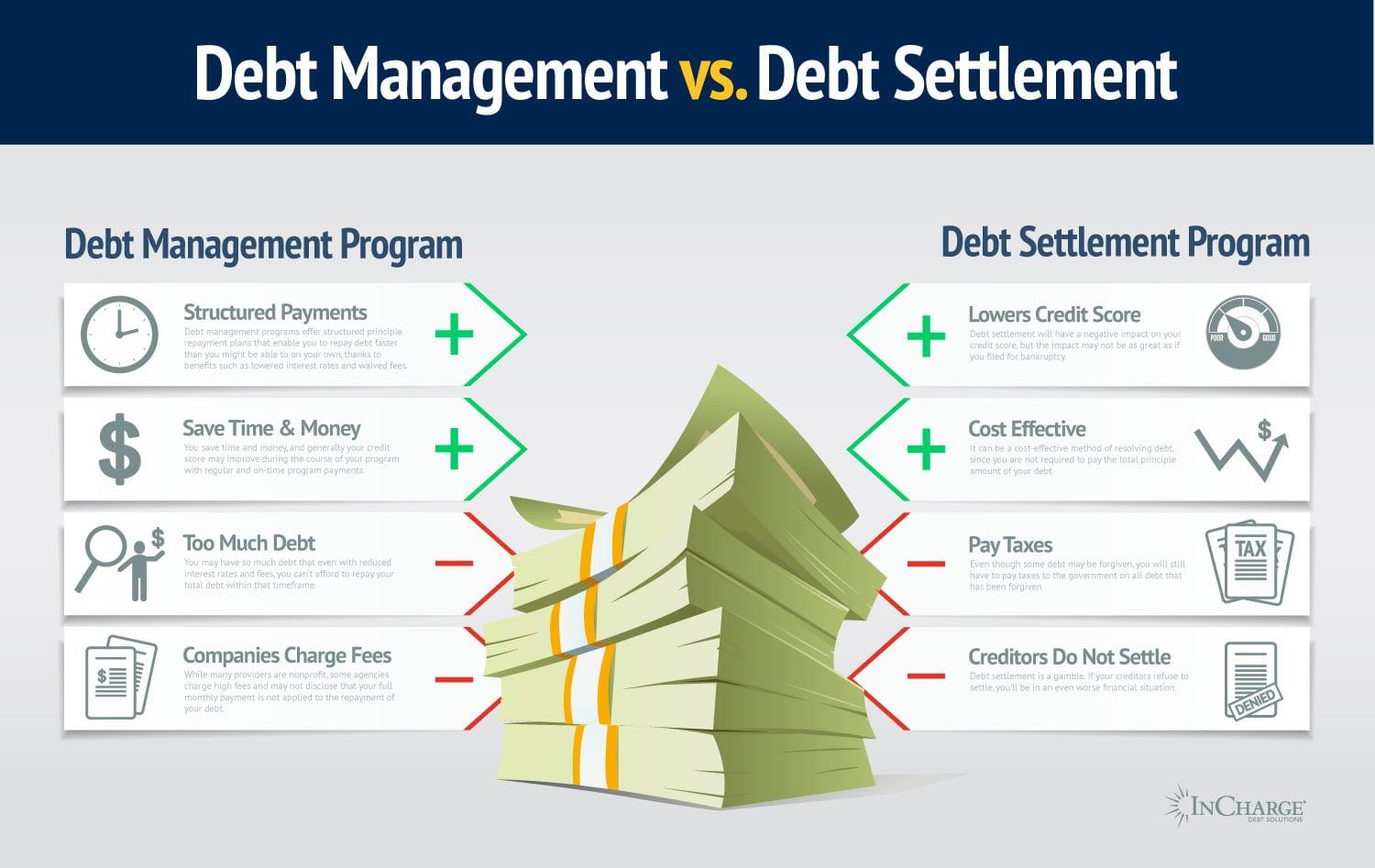
Debt Management
Managing debt effectively is a crucial component of ensuring your estate is well-protected and your financial wishes are honored. When planning your estate, it’s essential to have a clear picture of your outstanding debts, as they can significantly impact the distribution of your assets. Here are a few strategies to consider:
- Debt Inventory: Create a comprehensive list of your debts—including credit cards, loans, and mortgages—to understand total liabilities.
- Prioritization: Focus on high-interest debts first, which can help minimize the overall financial burden.
- Consultation: Seek advice from a financial advisor to explore options for debt consolidation or negotiation.
Additionally, being proactive in your not only relieves stress but also ensures that your loved ones do not inherit excessive financial burdens. A clear estate plan should include provisions for debt repayment, which can be laid out in a document that stipulates how remaining debts will be handled upon your passing. Consider the following points for your estate planning documents:
| Document Type | Purpose |
|---|---|
| Will | Specifies how to distribute assets and settle debts. |
| Trust | Allows for managed distribution of assets while covering debts. |
| Power of Attorney | Designates someone to manage financial matters if you are unable to. |

Saving for Retirement
Planning for your future involves more than just budgeting for the next vacation; it’s about ensuring financial stability in your golden years. A solid approach to retirement savings is essential, as it allows you to enjoy your later life without the stress of financial uncertainty. Consider the following strategies to enhance your retirement fund:
- Start Early: The earlier you begin contributing to your retirement account, the more time your money has to grow through compound interest.
- Utilize Employer Contributions: If your employer offers a pension or matching contributions to your retirement plan, take full advantage of it to maximize your savings.
- Diversify Your Investments: A balanced portfolio can help mitigate risks and ensure steady growth over time.
- Increase Your Contributions: Whenever you receive a raise or bonus, consider allocating a portion of it to your retirement savings.
To visualize how your savings can grow over time, here’s a basic breakdown based on varying contribution levels and investment returns:
| Annual Contribution | Years Until Retirement | Estimated Value at Retirement (5% Return) |
|---|---|---|
| $5,000 | 30 | $368,000 |
| $10,000 | 30 | $736,000 |
| $15,000 | 30 | $1,104,000 |
By committing to a retirement savings plan today, you are not just securing your financial future; you are investing in peace of mind that will pay dividends when you need them most. Assess your current savings strategy and optimize it for a comfortable retirement you deserve.

Emergency Fund Planning
When considering your financial future, having a safety net can provide peace of mind. An emergency fund acts as a cushion, ensuring that unforeseen circumstances don’t derail your long-term estate planning goals. Ideally, this fund should cover three to six months of living expenses, which can help you navigate unexpected medical bills, job loss, or urgent home repairs without needing to dip into your investments or rely on credit. Here are some key components to create a robust emergency fund:
- Determine Your Target Amount: Calculate the total monthly expenses and multiply by the number of months you want to cover.
- Choose a Safe Destination: Consider high-yield savings accounts or money market accounts to keep your funds accessible yet earning interest.
- Automate Contributions: Set up automatic transfers from your checking account to your emergency fund to build it consistently.
Ultimately, having enough resources at your disposal allows you to make decisions aligned with your estate planning instead of reacting out of necessity. Prioritizing your emergency fund helps safeguard your estate’s assets, offering you the flexibility to manage your investments and debts effectively. To visualize your current and target savings, consider using the following simple table:
| Current Savings | Target Savings | Months Covered |
|---|---|---|
| $5,000 | $15,000 | 3 |

Investment Strategies
When considering how best to secure your assets for future generations, diversification is a crucial factor. By spreading your investments across various asset classes such as real estate, stocks, and bonds, you not only mitigate risk but also increase the potential for growth. This strategy allows your portfolio to remain resilient against market fluctuations and economic changes. Additionally, regularly reviewing and adjusting your asset allocation can help ensure that your investments align with your evolving estate planning goals.
Another powerful approach is to incorporate tax-efficient investment vehicles into your estate plan. Utilizing options such as Roth IRAs or 529 college savings plans, can significantly enhance your strategy by allowing your assets to grow tax-free or tax-deferred. Furthermore, establishing a trust can help manage your estate, providing control over how and when your assets are distributed. Here’s a brief overview of common investment vehicles for estate planning:
| Investment Vehicle | Benefits |
|---|---|
| Roth IRA | Tax-free growth and withdrawals during retirement. |
| 529 Plan | Tax advantages for education savings. |
| Revocable Trust | Control over asset distribution and probate avoidance. |

Stock Market Investing
When embarking on the journey of estate planning, it is essential to incorporate various investment strategies that can enhance the value of one’s estate for future generations. Among these strategies, investing in the stock market stands out as a robust option due to its potential for long-term growth. Managing your portfolio wisely can lead to significant appreciation over time, ensuring that heirs inherit not just liquid assets, but also the fruits of sound investment decisions. Consider incorporating the following principles into your investment approach:
- Diversification: Spread investments across various sectors to mitigate risks.
- Long-term perspectives: Focus on companies with strong fundamentals and growth potential.
- Regular review: Monitor portfolio performance to align with your estate goals.
The stock market offers various avenues not only for growth but also for income generation that can be beneficial to your estate. Investing in stocks that pay dividends can provide a steady income stream that can be reinvested or distributed according to your estate plan. This approach not only preserves wealth but can also lead to a stronger financial legacy. Here’s a simple overview of investment choices that combine both appreciation and income generation for your estate:
| Investment Type | Potential Benefits |
|---|---|
| Growth Stocks | High potential for appreciation |
| Dividend Stocks | Regular income and potential for growth |
| Index Funds | Diversification with lower costs |

Real Estate Investment
When considering the financial legacy you wish to leave behind, real estate can serve as a cornerstone of your estate planning strategy. Investing in property not only offers potential appreciation but also provides an avenue for generating passive income during your lifetime. Diversifying your real estate portfolio with a mix of residential, commercial, and rental properties can enhance your wealth and create a safety net for your heirs. Key factors to consider include:
- Location: Choose properties in areas with growth potential.
- Property Type: Balance between short-term rental and long-term investment.
- Market Trends: Stay informed on local real estate trends.
An effective estate plan will also involve strategizing how to pass on your real estate assets. Establishing a trust can simplify the transfer process and potentially minimize tax implications. While weighing your options, take into account the following actions to ensure a seamless transition:
| Action | Benefit |
|---|---|
| Setting Up a Trust | Avoids probate and maintains privacy. |
| Designating Beneficiaries | Direct transfer and quicker availability of assets. |
| Regularly Updating Plans | Ensures plans reflect current financial situations and wishes. |

Credit Score Improvement
Understanding your financial health is pivotal, not only for securing a stable future but also for effectively managing your estate. One of the key elements in fortifying your financial foundation is to improve your credit score. Here are a few actionable strategies to consider:
- Regularly Check Your Credit Report: Monitoring your credit report allows you to identify any inaccuracies or fraudulent activities that could negatively impact your score.
- Pay Bills on Time: Consistently paying your bills promptly demonstrates reliability, which can significantly boost your creditworthiness.
- Reduce Outstanding Debt: Focus on paying down high-interest debts first, as this can improve your credit utilization ratio and enhance your score.
Additionally, it’s essential to understand the different factors that make up your credit score. A well-informed approach can lead to better management of your credit practices. Consider the following breakdown:
| Credit Score Factor | Impact Percentage |
|---|---|
| Payment History | 35% |
| Credit Utilization | 30% |
| Length of Credit History | 15% |
| New Credit | 10% |
| Types of Credit Used | 10% |

Financial Independence
Achieving is a journey that goes beyond mere savings and investments; it encompasses a broader strategy that includes preparing for the future. Estate planning is a critical component of this strategy. By thoughtfully arranging your assets, you not only safeguard your wealth but also ensure that your financial legacy is passed on according to your wishes. This involves identifying key goals such as protecting your family, minimizing taxes, and selecting appropriate beneficiaries for your benefits and assets. Here are some essential elements to consider:
- Wills: Outlining your final wishes regarding asset distribution.
- Trusts: Establishing a legal entity to manage assets for beneficiaries.
- Power of Attorney: Designating someone to make financial decisions on your behalf.
- Healthcare Proxy: Appointing a representative for medical decisions.
In navigating the intricacies of estate planning, a well-designed strategy can significantly impact both your finances and your loved ones’ future security. A detailed estate plan does not simply address current needs; it anticipates future changes in personal and financial circumstances. Additionally, incorporating tools such as trusts can provide greater control over how and when your assets are distributed. To visualize the essential documents in your estate planning toolbox, consider the following table:
| Document | Purpose | Who Needs It? |
|---|---|---|
| Will | Specifies asset distribution | Everyone with assets |
| Trust | Avoids probate, manages inheritance | Those with significant assets |
| Power of Attorney | Financial decision-making authority | Anyone wanting to designate authority |
| Healthcare Proxy | Medical decision-making representation | All adults should consider it |

Passive Income Streams
Building can significantly enhance your financial stability during your lifetime and provide lasting benefits to your heirs. When you incorporate well-planned estate strategies, you can ensure that your investments not only yield returns while you are alive but also create wealth that can be passed down. Consider diversifying your income-producing assets through options such as:
- Real Estate Investments: Acquire rental properties or invest in Real Estate Investment Trusts (REITs) for ongoing rental income.
- Dividend Stocks: Invest in dividend-paying stocks or funds that provide regular income without the need for active management.
- Peer-to-Peer Lending: Join platforms that allow you to lend to individuals or small businesses, earning interest on your capital.
Additionally, incorporating these streams into your estate planning can ensure their longevity. It’s important to regularly evaluate your portfolio and consider establishing a trust to manage assets effectively for your beneficiaries. Implementing strategies such as:
| Strategy | Benefit |
|---|---|
| Setting up a Living Trust | Avoids probate and ensures privacy for your assets. |
| Creating an Irrevocable Trust | Protects assets from creditors while potentially reducing tax burdens. |
| Utilizing Life Insurance Policies | Provides liquidity and can preserve wealth for heirs outside of the taxable estate. |
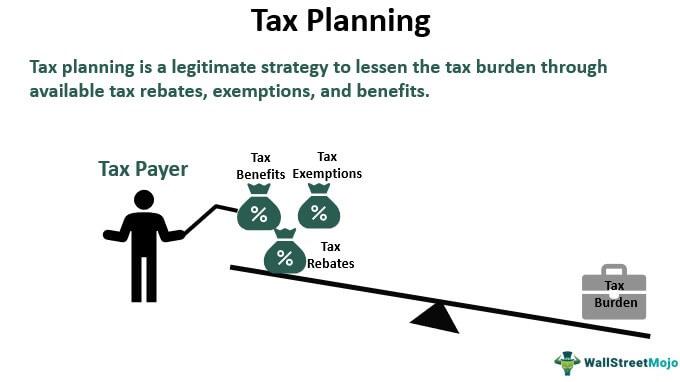
Tax Planning
When it comes to creating a robust estate plan, effective tax strategy plays a vital role in ensuring that your assets are distributed according to your wishes while minimizing the tax burdens for your beneficiaries. Understanding your tax obligations is crucial, as it helps you navigate the complexities of estate and inheritance taxes. A well-structured estate plan can incorporate various strategies, such as gifting assets during your lifetime to reduce the taxable estate or utilizing trusts that offer tax advantages while maintaining control over your assets. Here are some key tactics to consider:
- Establishing a Trust: Protects your assets and can help reduce estate taxes.
- Gifting Strategies: Annual exclusion gifts can reduce the size of your taxable estate.
- Charitable Donations: Can provide tax deductions while benefiting causes you care about.
- Retirement Accounts: Properly designating beneficiaries can minimize tax impacts.
To further illustrate how different strategies can affect your estate tax situation, consider the following overview of potential tax implications based on asset allocation:
| Asset Type | Tax Implications |
|---|---|
| Cash Accounts | Fully taxable upon death. |
| Real Estate | Potential for stepped-up basis, minimizing capital gains. |
| Investments | Capital gains tax may apply, depending on holding period. |
| Life Insurance | Generally tax-free for beneficiaries. |
By thoughtfully considering these strategies and how they interact with tax laws, you can create a legacy that not only aligns with your personal values but also provides for your loved ones in the most efficient way possible.

Retirement Accounts (IRA, 401k)
When considering your estate planning strategy, it’s essential to understand the impact of retirement accounts like IRAs and 401(k)s on your beneficiaries. These accounts often represent a significant portion of an individual’s assets, which can complicate the distribution process if not properly managed. By designating beneficiaries for these accounts, you can ensure that they pass directly to your chosen heirs without going through the probate process. This can lead to faster access to funds and potentially significant tax advantages for your beneficiaries, especially if they are in a lower tax bracket than you were during your lifetime. Remember to review these designations periodically, particularly after major life events such as marriage, divorce, or the birth of a child.
In addition to designating beneficiaries, understanding the required minimum distributions (RMDs) established by the IRS is crucial for effective estate planning. Failure to take these distributions can result in hefty penalties that diminish the overall value of your estate. Consider the following key points:
- RMD Age: Participants must begin withdrawals from traditional IRAs and 401(k)s by April 1 following the year they turn 72.
- Tax Implications: RMDs are generally taxable as ordinary income, which can affect your heir’s tax situation.
- Rollover Options: Beneficiaries may have the option to roll over inherited accounts, extending tax-deferral options.
| Account Type | Beneficiary Distribution Options |
|---|---|
| Traditional IRA | Withdrawals over the life of the beneficiary or lump sum |
| 401(k) | Full withdrawal or transfer to an inherited IRA |

Financial Planning for Families
Protecting your family’s future involves more than just securing a steady income; it necessitates a thoughtful approach to estate planning. This aspect of financial management ensures that your assets are distributed according to your wishes while minimizing tax liabilities and avoiding potential conflicts among heirs. Begin by outlining your assets, which may include real estate, investments, and personal belongings. To effectively communicate your preferences, consider the following key components:
- Wills and Trusts: Establish a will to dictate how your assets will be allocated. Trusts can provide ongoing financial support to loved ones while avoiding probate.
- Powers of Attorney: Designate trusted individuals who can make financial or medical decisions on your behalf, ensuring your wishes are honored even if you become incapacitated.
- Beneficiary Designations: Regularly review and update beneficiary information on accounts like life insurance and retirement plans to ensure alignment with your estate planning goals.
Creating a comprehensive estate plan involves thinking beyond the immediate financial implications and considering how your decisions affect the emotional and relational dynamics within your family. Periodically revisit and revise your plan, especially after significant life events such as births, marriages, or deaths. This will help you maintain its relevance and effectiveness. Organizing your assets can also simplify the transition for your loved ones, reducing strain during emotionally challenging times. A practical approach might include:
| Asset Type | Documentation Needed | Review Frequency |
|---|---|---|
| Real Estate | Deed, Mortgage Statements | Every 3 years |
| Investments | Account Statements, Partnership Agreements | Annual |
| Life Insurance | Policy Documents | Every 5 years |

Personal Finance Apps
In today’s digital age, managing your personal finances has never been easier, especially when it comes to crucial tasks like estate planning. With the right , you can streamline the complexities of wealth distribution and ensure your loved ones are taken care of. Some of the most effective apps offer features such as document storage, reminder notifications for updating wills, and budget tracking to allocate funds for various estate expenses. Here are some standout options:
- Trust&Will – Simplifies the process of creating wills and trusts.
- Everplans – A comprehensive platform for organizing important documents and end-of-life wishes.
- FabPlan – Allows for collaborative planning with family members.
- EasyWill – A straightforward app for drafting wills with step-by-step guidance.
Moreover, integrating these applications with a financial overview tool is essential for effective legacy planning. They can provide insights into your current financial state and help forecast potential estate taxes and other obligations. The table below highlights some of the key features that can assist in crafting a well-rounded estate plan:
| App Name | Key Features | User Rating |
|---|---|---|
| Trust&Will | Will Creation, Trust Services | 4.8/5 |
| Everplans | Document Vault, Care Planning | 4.7/5 |
| FabPlan | Family Collaboration, Asset Organization | 4.5/5 |
| EasyWill | Step-by-step Will Creation, Legal Guidance | 4.6/5 |
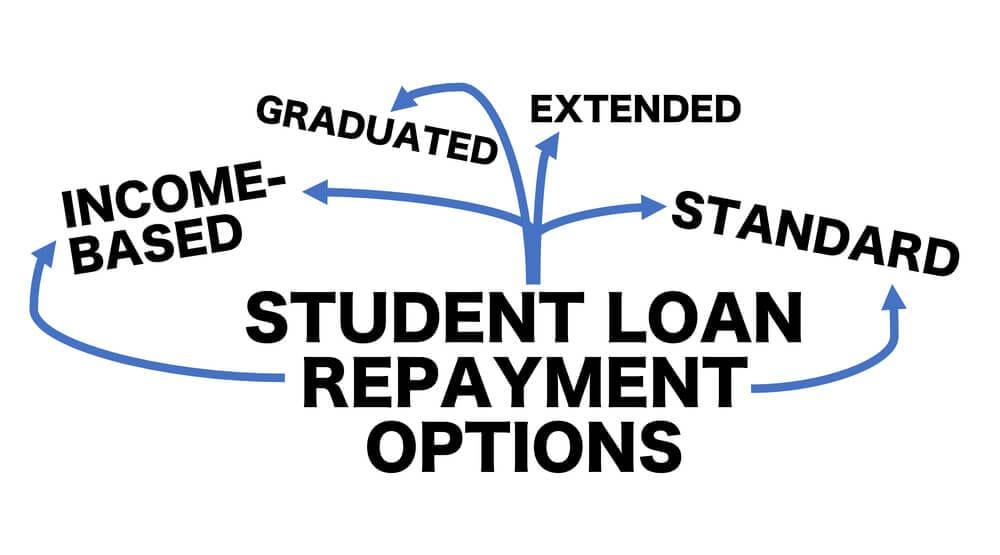
Student Loan Repayment
When considering the intricate web of estate planning, one crucial aspect that often lurks in the shadows is . Numerous individuals find themselves grappling with the burden of student debt, a financial obligation that can influence not only their personal finances but also their estate. It’s essential to examine how these debts may impact your estate upon your passing, especially if you are the primary borrower. In some cases, loans can be forgiven if the borrower meets specific criteria, such as passing away while in certain federal repayment programs. Understanding these nuances can illuminate pathways for smarter financial planning.
As you strategize, consider creating a comprehensive debt repayment plan that takes into account your student loans alongside your estate goals. Here are some key considerations to think about:
- Identify whether your loans are federal or private, as this can affect repayment terms upon death.
- Explore options for transfer of responsibilities if you have cosigners.
- Review forgiveness programs that might apply to your situation.
| Loan Type | Repayment Strategy |
|---|---|
| Federal | Potential forgiveness in certain cases |
| Private | Generally transferred to cosigners or estate |
By navigating through the complexities of these responsibilities, you can ensure that your loved ones are not left to handle unmanageable debts. Integrating your loan repayment strategy within your overall estate plan can bring peace of mind and a clearer financial future.

Debt-Free Journey
Embarking on a journey towards financial freedom often means confronting the less glamorous aspects of personal finance, such as estate planning. This crucial step ensures that the assets you’ve worked hard to accumulate are distributed according to your wishes. It’s not just about deciding who inherits your belongings; it’s about providing peace of mind for you and your loved ones. Here are some essential components to consider:
- Wills and Trusts: Legal documents that dictate how your estate will be handled.
- Powers of Attorney: Appoint someone to make decisions on your behalf should you become incapacitated.
- Beneficiary Designations: Ensure that your retirement accounts and life insurance policies reflect your current intentions.
Establishing a well-thought-out estate plan can contribute significantly to your by minimizing potential taxes and avoiding probate costs. By taking the time to organize your affairs, you’re not only securing your financial legacy but also alleviating the burden on your family. Below is a simplified overview of steps you might consider as you outline your estate plan:
| Step | Action |
|---|---|
| 1 | Assess your current financial situation. |
| 2 | Consult with an estate planning attorney. |
| 3 | Create or update wills and trusts. |
| 4 | Review titles and beneficiary designations. |
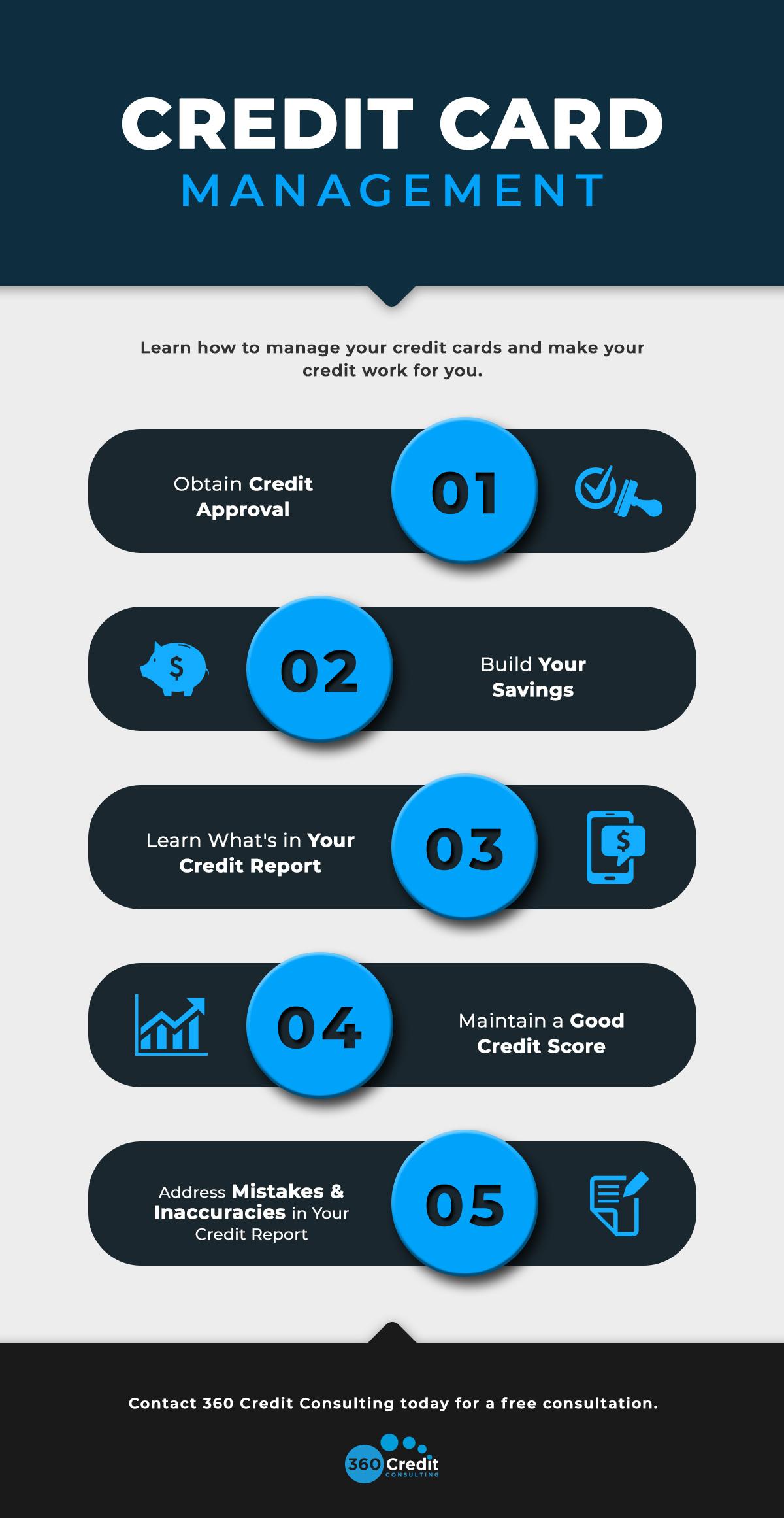
Credit Card Management
Effectively managing your credit cards is crucial when considering estate planning, as it can have significant implications on your financial legacy. To ensure that your debts do not become a burden on your heirs, it is essential to evaluate your current credit status diligently. Review your balances, interest rates, and payment history regularly, and consider consolidating any high-interest debts into a single, manageable payment. This can enhance your financial overview and make it easier for your loved ones to navigate through the estate after you’re gone.
In addition to paying off high-interest credit card debt, it’s advisable to keep an updated list of all credit accounts and their corresponding details. This can streamline the process for your estate executor. Helpful information to include is:
| Credit Card Issuer | Account Number | Current Balance | Due Date |
|---|---|---|---|
| Visa | 1234 | $1,234 | 15th of each month |
| MasterCard | 5678 | $987 | 10th of each month |
| American Express | **9101 | $2,345 | 20th of each month |
Ensuring these details are readily available can greatly simplify the settling of your estate. Additionally, discuss your wishes regarding credit card debts with your family, allowing them to understand how you want these responsibilities managed after your passing. Such transparency can reduce potential conflicts and promote a smoother transition for everyone’s peace of mind.

Budgeting for Freelancers
As a freelancer, mastering the art of budgeting is essential to ensuring a stable financial future. Unlike traditional employees who receive a steady paycheck, freelancers often face irregular income streams, making it crucial to anticipate fluctuations in earnings. To effectively budget, consider implementing a strategy that prioritizes essential expenses such as rent, utilities, and groceries, while also allocating funds for emergency savings and retirement contributions. Building a financial cushion can help freelancers navigate lean months with confidence.
In addition to essential budgeting, freelancers should take the time to establish a meticulous tracking system for their earnings and expenses. Utilizing a simple spreadsheets or a dedicated budgeting app can be beneficial. Here are some valuable categories to track:
- Income: Project payments, recurring clients, and freelance gigs.
- Fixed Expenses: Rent, utilities, and subscriptions.
- Variable Expenses: Travel, supplies, and contingencies.
- Investments: Business tools, training courses, and marketing efforts.
| Category | Estimated Monthly Cost |
|---|---|
| Essential Expenses | $1,500 |
| Emergency Fund Contribution | $300 |
| Retirement Savings | $200 |
By making conscious budgeting decisions and keeping track of financial health, freelancers can not only survive but thrive in a freelance career. This proactive approach allows for more informed decision-making about investments, ensuring a prosperous future.

Frugal Living Tips
When it comes to managing your finances as you plan for the future, estate planning can be a vital element of a frugal lifestyle. Instead of viewing this process as a daunting or overly complex task, treat it as an opportunity to ensure that your hard-earned assets are distributed according to your wishes while minimizing unnecessary expenses. Here are some effective strategies to consider:
- Conduct a DIY Will: Many free or low-cost online tools can help you draft a basic will without the need for an expensive lawyer.
- Regularly Review and Update: Revisit your estate plan annually or after major life events to ensure it still reflects your wishes.
- Avoid Probate: Consider using joint ownership or beneficiary designations for accounts to bypass probate, saving time and money.
Another key aspect of frugal estate planning is being informed about your options. A little research can go a long way in avoiding costly mistakes and ensuring that your estate is handled in a way that respects your intentions. Understanding the following can greatly enhance your planning efficiency:
| Item | Consideration |
|---|---|
| Life Insurance | Can provide cash flow for beneficiaries, but assess if the policy is truly necessary. |
| Trusts | Avoids probate but comes with more upfront costs; weigh pros and cons carefully. |
| Power of Attorney | Assign someone to make decisions if you become incapacitated; a simple yet powerful tool. |

Side Hustles for Extra Income
Exploring alternative avenues for supplemental income can be both rewarding and fulfilling. For individuals passionate about finance and helping others, offering estate planning services can be an excellent side hustle. This could involve aiding clients in drafting wills, setting up trusts, or providing guidance on navigating the complexities of inheritance laws. By leveraging your organizational skills and legal knowledge, you can create tailored plans that secure families’ futures, all while earning an additional income stream.
Consider collaborating with financial advisors or real estate agents who may require estate planning resources for their clients. Creating educational workshops or online webinars can also attract potential clients. Here are some ways to maximize your estate planning side hustle:
- Network: Attend local events to meet potential clients and partners.
- Educate: Share informative articles or videos on social media regarding estate planning basics.
- Online Presence: Establish a website offering clear information on your services.
| Service Offered | Potential Earnings |
|---|---|
| Will Drafting | $200 – $500 |
| Trust Setup | $1,000 – $3,000 |
| Consultation Services | $100 – $300 per hour |
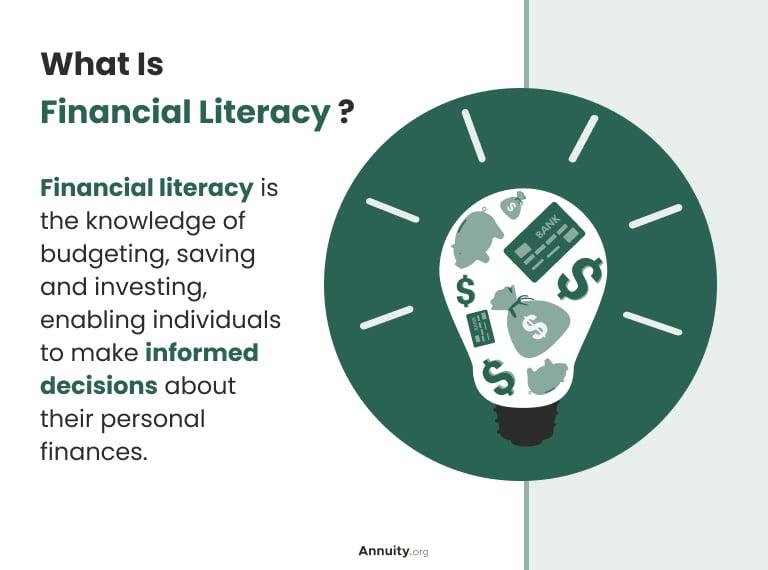
Financial Literacy Education
Understanding the intricacies of estate planning is essential for achieving financial peace of mind. At its core, estate planning involves a strategic approach to managing your assets during your lifetime and distributing them after your passing. By engaging in this process, individuals can ensure that their desires regarding asset distribution are honored, while also minimizing potential taxation and legal complications for their heirs. A well-structured plan typically includes key documents such as:
- Wills: Outline your wishes regarding asset distribution.
- Trusts: Help manage your assets during your lifetime and guide their distribution after death.
- Powers of Attorney: Assign decision-making authority in financial or health-related matters.
- Living Wills: Specify your healthcare preferences when you’re unable to communicate them.
Regular reviews and updates to your estate plan are just as crucial as the initial setup, especially after major life events such as marriage, divorce, or the birth of a child. It’s also important to consider the state laws that may impact your estate plans, as they can vary significantly. A helpful way to visualize your financial legacy is through a table display of your assets and their designated beneficiaries, allowing you to see at a glance how your wealth will be distributed. Here’s a simple outline:
| Asset Type | Asset Description | Beneficiary |
|---|---|---|
| Real Estate | Family Home | Spouse |
| Bank Account | Savings Account | Child |
| Investments | Stock Portfolio | Sibling |

Insurance Planning
Insurance plays a vital role in safeguarding your estate and ensuring that your loved ones are financially secure after your passing. A well-thought-out insurance policy can help cover any potential debts, taxes, or expenses that may arise, making it crucial to factor in various types of coverage as part of your estate planning strategy. Consider the following types of insurance when orchestrating your plan:
- Life Insurance: Provides a financial payout to beneficiaries, helping to replace lost income, settle debts, and cover living expenses.
- Disability Insurance: Offers income replacement in case you become unable to work, ensuring you can maintain your financial obligations.
- Long-Term Care Insurance: Covers potential medical and caregiving costs, protecting your estate from being depleted due to unforeseen healthcare needs.
Integrating these insurance products into your estate plan can create a safety net that enhances the overall security of your wealth. Additionally, understanding how much coverage you require is essential for optimal protection. Below is a simple framework to help determine your insurance needs:
| Coverage Type | Purpose | Considerations |
|---|---|---|
| Life Insurance | Replace lost income for dependents | Review policy limits based on debt and expenses |
| Disability Insurance | Protect income in case of illness/injury | Consider occupation-specific policies for better protection |
| Long-Term Care Insurance | Cover long-term medical needs | Assess potential healthcare costs as you age |

Long-Term Wealth Building
When considering strategies for building enduring wealth, one of the cornerstones is effective estate planning. This process involves not just the distribution of assets after one’s passing, but also the thoughtful consideration of how to manage and protect those assets during one’s lifetime. The goal is to ensure that your wealth continues to grow and is passed on to future generations in the most efficient manner possible. Key elements of a comprehensive estate plan might include:
- Will and Trusts: Clearly outline how you want your assets divided and establish trusts to control when and how beneficiaries receive their inheritances.
- Life Insurance: This provides a financial safety net for your loved ones and can help cover estate taxes.
- Beneficiary Designations: Ensure they’re updated on all financial accounts to avoid probate complications.
- Durable Power of Attorney: Designate someone to make financial and healthcare decisions if you’re unable to do so.
Moreover, regularly reviewing and updating your estate plan is essential as circumstances change—whether through marriage, the birth of a child, or significant shifts in your financial status. This ongoing process not only keeps your wealth intact but also solidifies your legacy and values for future generations. Below is a simple table illustrating the components of a solid estate plan:
| Component | Purpose |
|---|---|
| Will | Distributes assets after death |
| Trusts | Manages assets during life and beyond |
| Power of Attorney | Handles decisions when you’re incapacitated |

Saving for College
When considering how to adequately finance a child’s education, it is essential to incorporate strategies that align with your overall estate planning goals. Establishing a dedicated college savings fund can not only lessen the financial burden on your family but can also be a strategic asset when forming your estate. One of the most popular options is a 529 college savings plan, which offers tax advantages and flexibility in choosing educational institutions. Here are some benefits:
- Tax-Free Growth: Earnings grow federally tax-free when used for qualified education expenses.
- Control: The account holder retains control over the assets, allowing for adjustments based on changing needs.
- High Contribution Limits: Many plans allow significant contributions without incurring gift taxes.
Additionally, integrating education funding into a trust can be an effective way to protect funds designated for educational purposes. A trust can ensure that the money is used solely for education, safeguarding it from mismanagement while also providing you with peace of mind. Below is a comparison of two popular college funding options:
| Funding Option | Advantages | Considerations |
|---|---|---|
| 529 Plan | Tax-free growth, diverse investment options | Limited to educational expenses |
| Trust Fund | Controlled distribution, asset protection | Complex setup and ongoing management |

Estate Planning
is a crucial process that ensures your wishes are honored even when you’re no longer able to communicate them. It involves making definitive decisions about how your assets will be distributed, who will take care of your dependents, and what medical decisions will be made on your behalf. This proactive approach not only provides peace of mind but also minimizes the potential for conflict among family members. Key components to consider include:
- Wills and Trusts: Legal documents that outline your wishes regarding asset distribution.
- Power of Attorney: A designation for someone to make financial or health decisions on your behalf.
- Beneficiary Designations: Ensuring your accounts and policies are allocated according to your wishes.
Additionally, reviewing your estate plan regularly is essential as your life circumstances, laws, and family dynamics change. A well-structured estate plan can prevent the lengthy and often contentious probate process, allowing your loved ones to focus on grieving and healing instead of financial or legal troubles. Consider the following strategies to keep your estate plan current:
- Regular Reviews: Schedule annual check-ins with your attorney.
- Life Events: Update your plan after significant changes such as marriage, divorce, or the birth of a child.
- Tax Implications: Stay informed of changes in tax laws that might affect your estate.
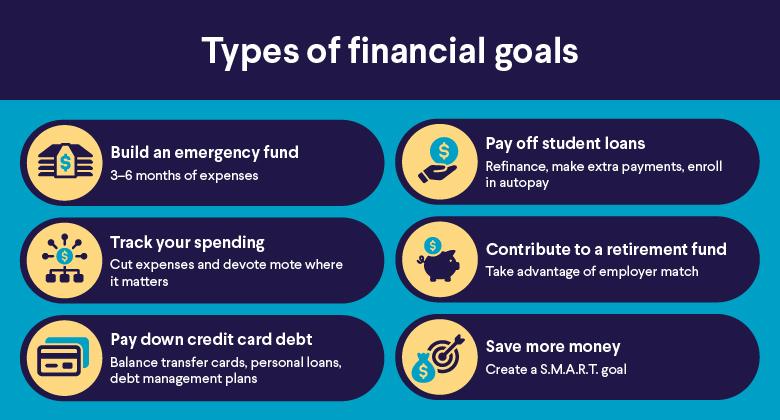
Financial Goals Setting
When embarking on your estate planning journey, it’s crucial to establish clear financial goals that align with your long-term vision for wealth transfer. Start by determining the specific financial objectives you wish to achieve, such as protecting your assets, minimizing estate taxes, or ensuring your heirs are financially secure. This process not only prioritizes your goals but also allows you to effectively communicate your wishes to your loved ones. Some common financial targets to consider include:
- Maximizing the value of your estate through smart investment strategies.
- Designating beneficiaries for various accounts and assets.
- Establishing trusts to control when and how your assets are distributed.
- Creating a comprehensive budget for ongoing expenses related to your estate.
To better visualize your financial priorities, you can use the following table to outline and assess your goals:
| Financial Goal | Target Amount | Timeframe |
|---|---|---|
| Asset Value Growth | $500,000 | 5 Years |
| Reduce Estate Tax Liabilities | $30,000 | 1 Year |
| Establish Trust Fund | $200,000 | 3 Years |
By setting these clear financial goals, you pave the way for a secure future and can ensure that your estate is managed according to your wishes. Regularly review and adjust these objectives as your financial situation and family dynamics shift, creating a resilient and effective estate plan that stands the test of time.

Money Management for Couples
When it comes to planning for the future, estate planning is a crucial investment for couples seeking to protect their assets and ensure their wishes are honored. It not only lays out who will inherit your possessions but also helps avoid unnecessary disputes and legal complications down the line. Couples should consider the following key components when creating their estate plan:
- Wills: A clear document that specifies how assets are to be distributed.
- Trusts: Legal arrangements that can help manage assets during and after one’s lifetime.
- Beneficiary designations: Naming beneficiaries can streamline the transfer of certain assets, like life insurance and retirement accounts.
Moreover, discussing even difficult topics like healthcare directives and power of attorney can significantly reinforce a couple’s bond. These decisions ensure that partners will make informed choices on each other’s behalf when necessary. Here is a simple comparison of two common options:
| Option | Advantages | Considerations |
|---|---|---|
| Will | Simple to create, states how assets will be distributed. | Must go through probate, which can be time-consuming. |
| Trust | Avoids probate, provides privacy and control over assets. | More complex and often requires ongoing management. |

Family Budgeting
Creating a sustainable plan for your finances is essential when considering any future estate. Start by establishing a clear understanding of your current financial landscape. This includes assessing your income, expenses, debts, and savings. Consider categorizing your expenses to get a clearer picture:
- Fixed Expenses: Rent or mortgage, utilities, insurance
- Variable Expenses: Groceries, transportation, entertainment
- Savings: Emergency fund, retirement plans, investments
When setting your budget, think long-term by prioritizing significant financial goals like college funds, retirement savings, or purchasing a home. It’s also wise to allocate a portion of your budget to estate planning specifics, ensuring you have provisions in place for unexpected events. Here’s a simple budgeting breakdown to consider:
| Category | Percentage of Income |
|---|---|
| Housing | 30% |
| Utilities and Bills | 10% |
| Groceries | 15% |
| Savings and Investments | 20% |
| Discretionary Expenses | 15% |
| Estate Planning and Insurance | 10% |

Smart Spending Habits
When it comes to preparing for the future, making sound financial decisions is crucial, especially in estate planning. Developing can ensure that your assets are managed wisely, protecting your legacy for future generations. Here are some practical strategies:
- Establish a Clear Budget: Knowing your income and expenses helps in allocating funds for estate planning.
- Invest in Professional Advice: Consulting with financial advisors and estate lawyers can save you money and heartache long-term.
- Utilize Tax-Advantaged Accounts: Retirement and educational savings accounts can optimize your estate’s value.
- Avoid Unnecessary Debt: Keep liabilities low to enhance your net worth when planning your estate.
Additionally, you might consider reviewing your spending habits periodically to identify areas for improvement. A well-organized plan simplifies the distribution of your estate and maximizes the value passed on to beneficiaries. Here’s a quick overview of some tips:
| Tip | Description |
|---|---|
| Regular Reviews | Assess your estate plan and spending habits every few years. |
| Emergency Fund | Establish an emergency fund to avoid dipping into your estate. |
| Automate Savings | Set up automatic transfers to savings or investment accounts. |
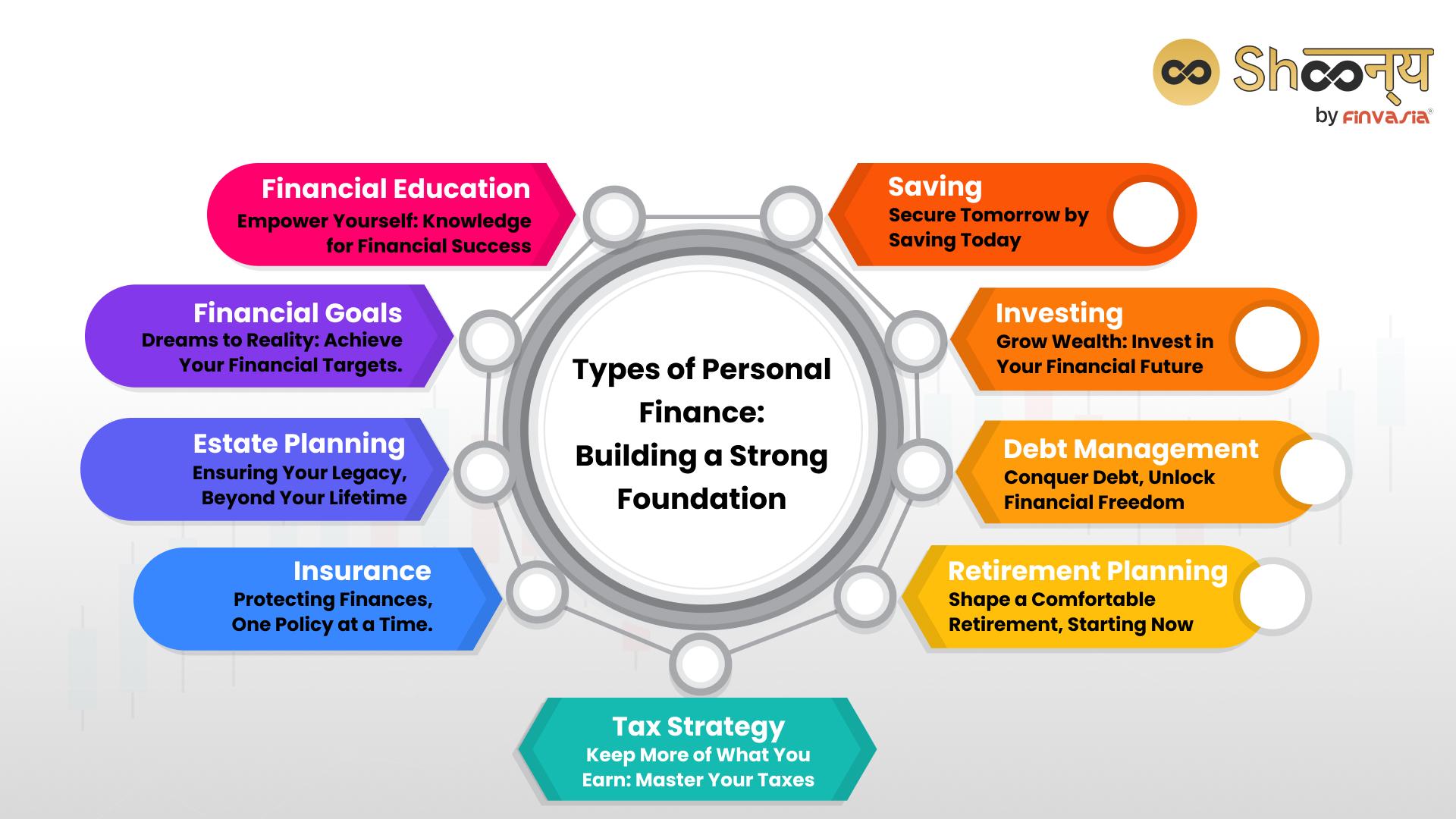
Personal Finance for Millennials
Estate planning might seem like a daunting task, especially for millennials who are often navigating student loans, career starts, and rising living costs. However, taking the time to create a solid estate plan can provide a sense of security and peace of mind. It involves deciding how your assets will be distributed after your death and includes documents like wills, trusts, and power of attorney. Consider prioritizing the following elements in your plan:
- Wills: Specify beneficiaries for your assets and outline your wishes.
- Trusts: Manage your assets while you’re alive and ensure a seamless transfer to your heirs.
- Power of Attorney: Designate someone to make financial or medical decisions on your behalf if you become incapacitated.
- Beneficiary Designations: Ensure your life insurance and retirement accounts have updated beneficiaries.
Creating a comprehensive estate plan doesn’t have to be expensive. Many millennials can start with online services that guide you through the process for a fraction of traditional costs. It’s also wise to regularly review and update your plan as life circumstances change—such as marriage, children, or career advancements. To help simplify the process, consider the following checklist:
| Task | Status |
|---|---|
| Draft a Will | ✅ Completed |
| Set Up a Trust | ⬜ Not Started |
| Review Beneficiary Designations | ✅ Updated |
| Designate Power of Attorney | ⬜ Not Started |

Wealth Preservation Strategies
Effective estate planning serves as a cornerstone of wealth preservation, ensuring that your assets are passed on according to your wishes while minimizing potential taxes and legal complications. Engaging in a well-structured estate plan involves various strategies, including the establishment of trusts, drafting of wills, and regular reviews of beneficiary designations. By creating a comprehensive plan, you can secure your legacy and provide peace of mind for your loved ones. Consider these essential components:
- Wills: Directions for asset distribution and guardianship of dependents.
- Trusts: Protection of assets from probate and potential mismanagement.
- Power of Attorney: Designation of a trusted individual to make financial decisions on your behalf.
- Healthcare Proxy: Appointing someone to make medical decisions if you’re unable to do so.
In addition to foundational documents, implementing strategic tax considerations can significantly enhance the preservation of your wealth. It’s crucial to stay informed about relevant laws and potential changes in legislation that may affect your estate’s value. A well-prepared estate plan often includes:
| Strategy | Benefit |
|---|---|
| Gifting Strategies | Reduce taxable estate by transferring assets during your lifetime. |
| Charitable Contributions | Support causes you care about while receiving potential tax benefits. |
| Life Insurance Policies | Provide liquidity to cover taxes or debts, safeguarding your estate’s value. |
Insights and Conclusions
As we conclude our exploration of estate planning, it becomes clear that this essential process is much more than just legal paperwork; it’s a profound act of love and foresight. Just as one might plant a garden, nurturing it with care, estate planning allows you to cultivate a legacy that will flourish even after you are gone.
Whether you are just beginning to consider your options or are revisiting your existing plans, remember that the choices you make today can offer peace of mind for both you and your loved ones tomorrow. Engaging with professionals, educating yourself about various tools, and taking the time to reflect on your wishes can empower you to navigate this journey with confidence.
estate planning is a testament to your values, dreams, and hopes for those who follow. By planning diligently, you ensure that your legacy endures and that your loved ones have the support they need to navigate life’s transitions. So take that first step — your future self and your family will thank you for it.



